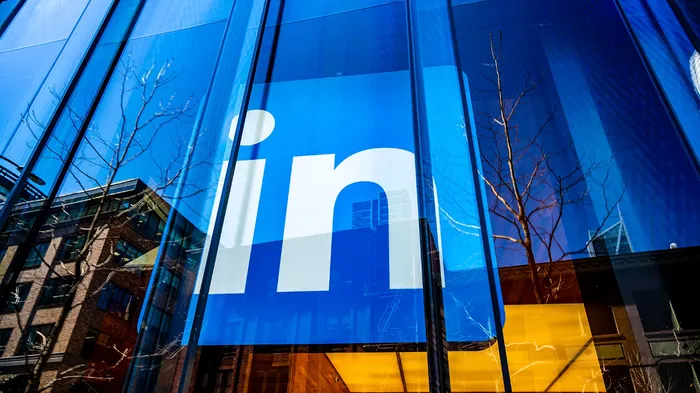
Platforms like LinkedIn are invaluable for expanding your network, says the author.
Image: Smith Collection/Gado/Getty Images
As a business owner, your network is more than a list of contacts - it’s a growth engine. This is especially true for startups, with one study revealing a direct correlation between the number of networking activities an entrepreneur engages in and their likelihood of achieving profitability, revenue growth, innovation, access to funding, and strong talent.
The value of collaborations or partnerships is equally compelling. A McKinsey study found that organisations combining multiple collaboration mechanisms – including partnerships – are more likely to outperform peers, launching nearly twice as many successful business initiatives and growing market share at significantly higher rates. Whether it’s a distribution alliance, a referral agreement, or a strategic collaboration, building the right business relationships can open doors to new markets, shared resources and greater resilience.
Here are five ways to build strong business networks and partnerships:
Shift your mindset: it’s about relationships, not transactions
Effective networking is not about short-term gain; it’s about building long-term, mutually beneficial relationships. This means showing genuine interest in others, listening actively, and offering help where you can. People are more likely to support your business if they feel that you are also invested in theirs. Approach networking with a mindset of collaboration rather than self-interest or competition.
Join industry bodies and business associations
Membership in a professional or industry body gives you instant access to a community of like-minded business owners and professionals. Organisations like the Small Business Institute or National Small Business Chamber, local chambers of commerce, or sector-specific associations host regular events and provide platforms for knowledge sharing, advocacy and collaboration. These forums also help you stay up to date with regulatory changes, industry trends, and funding opportunities.
Leverage digital networking platforms
Platforms like LinkedIn are invaluable for expanding your network beyond geographic boundaries. Make sure your profile is professional and up-to-date, with content that reflects your business expertise. Engage with posts from others in your industry and reach out to potential partners or mentors with personalised messages. Online communities and forums, including WhatsApp groups, can also be useful for quick advice, referrals and support.
Attend events strategically
Not all networking events are worth the time and financial commitment, so focus on those that align with your business goals or target market. Whether it’s trade expos, accelerator demo days, or sector-specific conferences, these events offer excellent opportunities to meet potential clients, collaborators, and suppliers. To get the most out of an event, go prepared: know who will be attending, what you want to learn, and how to introduce your business succinctly.
Don’t underestimate internal networks
Your employees, suppliers, and existing customers are part of your network too. Encourage open communication and collaboration within your team. Ask your suppliers for introductions or referrals and engage with customers in a way that turns them into ambassadors for your brand. Word of mouth remains one of the most powerful marketing tools for small and medium enterprises (SMEs).
Strong networks and partnerships don’t happen overnight; they grow from consistent, genuine effort. By being intentional about who you connect with, how you engage, and the value you offer, you can build a network that not only supports your business during tough times, but also helps drive long-term growth.

Jeremy Lang is the managing director at Business Partners Limited.
Image: Supplied
Jeremy Lang, Managing Director at Business Partners Limited
*** The views expressed here do not necessarily represent those of Independent Media or IOL.
BUSINESS REPORT